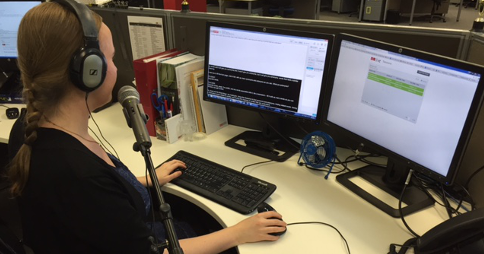
All children with an ASD face challenges arising from their difficulty with all forms of social communication, including difficulty in understanding gesture and facial expression, many have auditory processing issues. Many have a very literal interpretation of language which causes problems in understanding figurative speech, metaphor and complex instructions.
Using the innovatory Ai-Live technology, this approach has been enabled by the development of Simple Text, where the teacher’s speech is captured and re-spoken by captioners who remove the very things that challenge the student with an ASD. This will lower anxiety and increase focus and attention. The results of the pilot program being undertaken in the UK and being evaluated by the University of Melbourne Graduate School of Education (UMGSE) are becoming visible. One of the teachers involved in the program, Sam Lawrence speaks of the use of the technology in Doucecroft School (a specialist school that is part of Autism Anglia, UK).
“The use of the Ai-Live technology helped the students to focus on their lessons and to develop a wide range of skills. We used the technology in a variety of ways such as teaching conversational skills, supporting the students in being able to recall information, assess speaking and listening, talk for writing approach, creating play scripts and story writing. The transcripts were made available and were used in PSHE lessons to re-emphasise key points, for example by recognising times in in the lesson when students were being disruptive, making inappropriate comments and not following instructions from key members of staff.”
The program is being managed by Ai-Media’s UK Executive Director, Eileen Hopkins, who has extensive experience in the ASD field. She has been working for Ai-Media in the past year to develop Simple Text and feels that the technology offers not only support to learning but can radically affect a student’s classroom behaviour, allowing students to focus on tasks rather than be challenged by multiple interpretations of auditory input, gesture and facial expression.
The benefits are also recognised by the students, as one involved in the program said, “It helped me focus in the lessons and it helped me to remember words said. I enjoyed it very much”.
References
1 Australian Bureau of Statistics report 4428.0 – Autism in Australia
Useful links
Top of page

